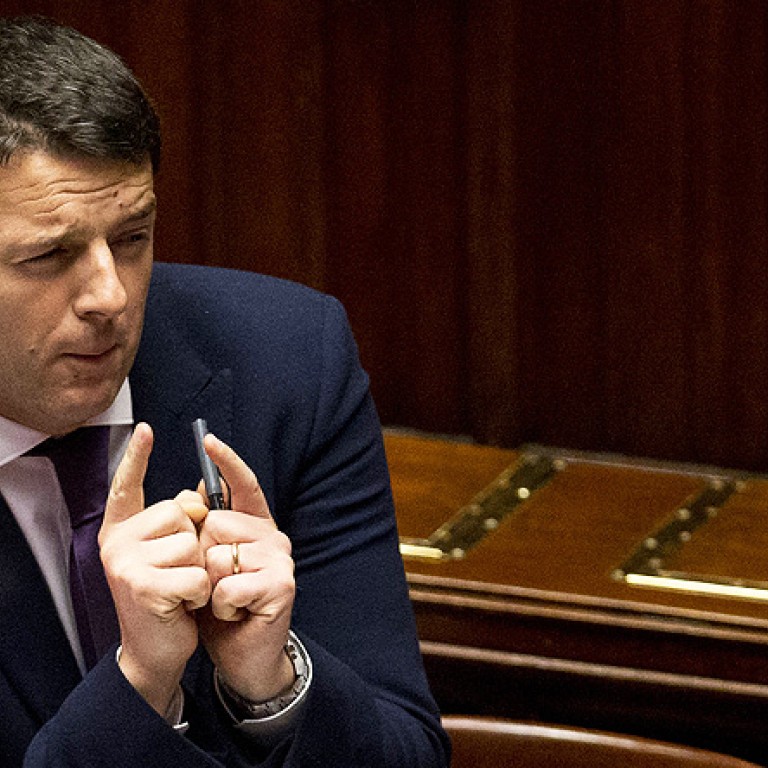
Rome spared bankruptcy by federal bailout
Matteo Renzi’s government’s last-minute cash injection comes after earlier deal to plug 816-million-euro budget shortfall was scrapped
Decadent and in decline, its beauty imperilled by physical and moral decay, the Rome portrayed in Paolo Sorrentino’s film could end up giving Italy a yearned-for win at the Oscars on Sunday night. But off-screen and far from the glitz of Hollywood, the financial troubles of the eternal city – and the daily trials of its long-suffering residents – are no cause for celebration.
On Friday, at the end of a week which saw the spectre of bankruptcy loom large over the ancient capital, the Italian federal government said it had approved a last-minute decree that would give an urgently-needed injection of funds to the city, thus staving off imminent disaster.
While not detailing the new plans, cabinet undersecretary Graziano Delrio said the sum to be transferred to the municipality “remains the same”– around 500 million euro (HK$5.3 billion) – as had been envisaged under a previous decree ditched earlier in the week by the government.
Nicknamed “Save Rome”, that decree had become so bogged down in a verbose and venomous parliamentary process that Mateo Rienzi’s new administration withdrew it and said it would find a new way of helping the Rome authorities plug an 816 million euro hole in their budget.
The decision prompted thinly-veiled hilarity among some in the opposition, with one MP for the rightwing, regionalist Northern League suggesting the best thing for the city would be a takeover by a special commissioner in the mould of hated emperor Nero, who fiddled while Rome burned. But on the Capitoline hill, where Mayor Ignacio Marino is based, the decision sparked rage. In a furious outburst, the transplant surgeon-turned-centre-left politician said the capital risked a shutdown of public services as soon as next week if a replacement decree was not passed immediately.
Making it clear he would resign rather than implement swingeing cuts and mass lay-offs, he even said that plans for the canonisations of popes John Paul II and John XXIII in April would be put at risk if a transfer of funds was not guaranteed.

“I promised Pope Francis, in a personal meeting with him, that I would take care to prepare everything,” Marino was quoted as saying.
“If there aren’t the conditions in which to do so, I will tell the government that there aren’t the conditions in which I can be mayor.”
His comments set him on a collision course with Renzi, Italy’s new prime minister. On the front of Friday’s , the two Democratic Party politicians were depicted as Romulus and Remus suckling on the she-wolf of Rome’s founding myth. “There is no more latte [milk]!” says the unhappy mayor of Rome. “There is no more Letta!” replies Renzi – a reference to his recently-ousted predecessor. “And I am from Florence!”
The new decree appeared enough to ease tensions between the two men, but it will take a lot more to soothe the many dissatisfied citizens of the Italian capital who are indignant following years of parlous finances and bad government.
“You want to bring the city to a standstill and have not realised that the city is already at a standstill,” wrote one commentator, Rome-born Marco Sarti, in an open letter to the mayor published on news site Linkiesta in which he cited the capital’s potholed roads, its “embarrassing” underground rail network and its general air of “degradation and filth”.
, the Rome-based daily newspaper, joined in the chorus of complaint, presenting a picture gallery, “somewhere between neo-realism and the aesthetic of pain”, of what it said were postcards showing contemporary Rome’s decline: damaged roads, debt-laden transport body Atac, an opera house that just this week flirted with industrial action, and pigs rifling through overflowing rubbish on the streets.
Marino, who was elected last year following the harshly criticised term in office of centre-right politician Gianni Alemanno, has insisted his administration was saddled with huge financial problems but is making progress nonetheless. He has turned the road around the Colosseum into a partially-pedestrianised area and has closed a highly controversial landfill site.
